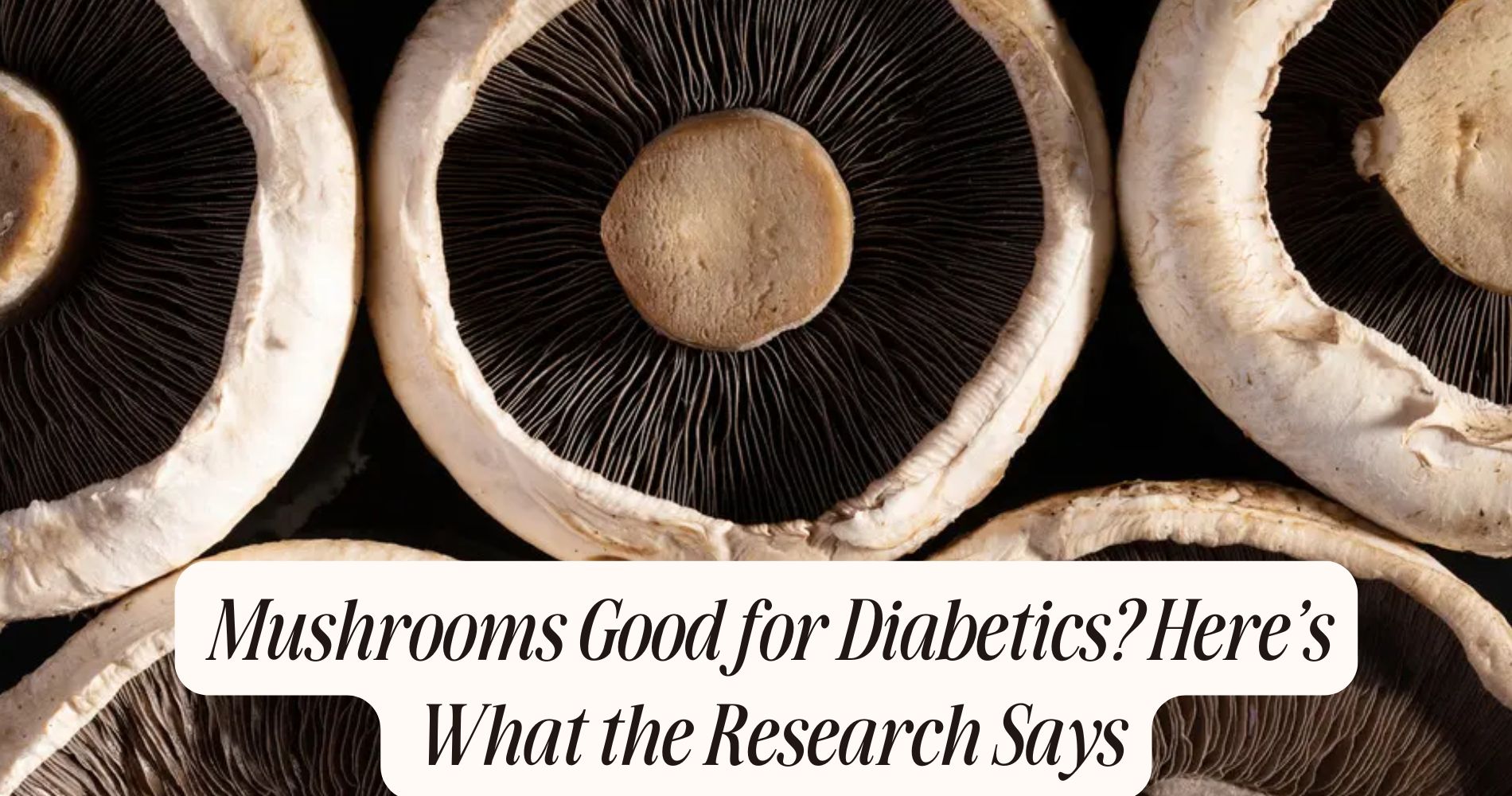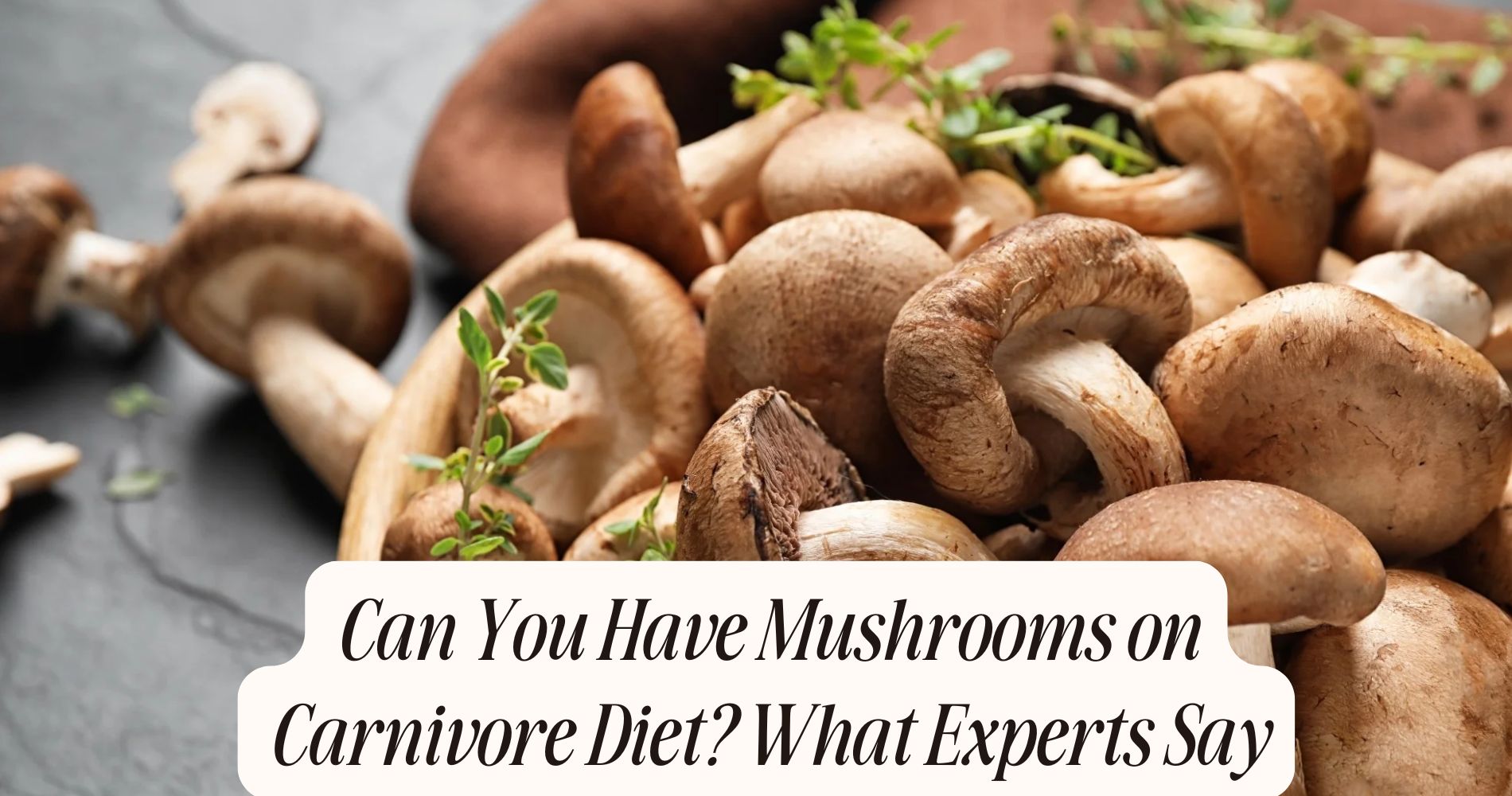
Mushrooms Good for Diabetics? Here’s What the Research Says
If you’re managing diabetes, exploring foods that support stable blood sugar is key—and mushrooms good for diabetics may be a smart addition. These low-carb, nutrient-rich fungi are packed with fiber and antioxidants, which can aid in glucose regulation and improve insulin sensitivity. Varieties like shiitake, maitake, and portobello not only enhance your meals but may also help reduce inflammation associated with diabetes. Curious about how to safely incorporate them into your routine and what recent studies say about their benefits? Let’s dive into the research-backed insights.
The Nutritional Profile of Mushrooms
When you consider incorporating mushrooms into your diet, you'll find they boast a remarkable nutritional profile that can benefit diabetics.
Various mushroom varieties, such as shiitake, portobello, and oyster mushrooms, are rich in essential nutrients while remaining low in calories. They’re packed with vitamins like B and D, minerals such as selenium and potassium, and antioxidants that support overall health.

The nutrient density of mushrooms makes them an excellent choice for those managing blood sugar levels. Additionally, their fiber content can enhance digestion and promote satiety, helping you feel full longer.
How Mushrooms May Impact Blood Sugar Levels
Mushrooms can play a significant role in managing blood sugar levels for diabetics. Research suggests that certain types of mushrooms may help improve your glycemic response. They’re low in carbohydrates and calories, which means they won't spike your blood sugar like some other foods might.
Additionally, mushrooms contain compounds like beta-glucans that can enhance insulin sensitivity, further aiding in blood sugar control. Including mushrooms in your diet may also contribute to overall health, as they provide essential nutrients without the added sugars found in many processed foods.
While not a cure for diabetes, incorporating mushrooms can be a smart move toward stabilizing your blood sugar levels and promoting a balanced diet.
Key Types of Mushrooms for Diabetic Management
Certain types of mushrooms can be especially beneficial for managing diabetes, as they offer unique properties that support blood sugar regulation.
Shiitake mushrooms, for instance, have demonstrated benefits due to their rich content of polysaccharides, which may help improve insulin sensitivity and reduce blood sugar levels. Their anti-inflammatory properties also contribute to overall health.
On the other hand, portobello mushrooms possess low-calorie and low-carbohydrate properties, making them a great addition to your meals without spiking your glucose levels. Additionally, their fiber content can aid digestion and promote satiety.

Incorporating these mushrooms into your diet not only adds flavor but also provides essential nutrients that support your diabetic management efforts effectively.
Research Findings on Mushrooms and Insulin Sensitivity
Recent studies have shown promising results regarding the impact of mushrooms on insulin sensitivity, particularly for individuals managing diabetes.
Certain mushroom varieties, like shiitake and maitake, have demonstrated the ability to enhance insulin response. Research indicates that these fungi contain bioactive compounds such as polysaccharides and antioxidants, which may contribute to improved glucose metabolism.

In one study, participants consuming specific mushroom varieties exhibited a significant reduction in blood sugar levels after meals.
While findings are encouraging, it's crucial to note that more extensive clinical trials are needed to fully understand the mechanisms at play.
Incorporating various mushrooms into your diet could be beneficial, but always consult with a healthcare professional for personalized advice.
Incorporating Mushrooms Into a Diabetic Diet
When looking to enhance your diabetic diet, incorporating a variety of mushrooms can be an effective strategy. Mushrooms are low in calories and carbohydrates, making them a smart choice for meal planning. They’re packed with nutrients, including fiber and antioxidants, which can support overall health.
You can easily add mushrooms to your meals; try sautéing them with vegetables, adding them to salads, or including them in stir-fries. Explore diverse mushroom recipes, like stuffed portobello caps or mushroom soups, to keep your meals exciting.
Additionally, consider using mushrooms as a meat substitute to lower saturated fat intake. By creatively integrating mushrooms into your diet, you’ll not only enjoy their health benefits but also add flavor and variety to your meals.
Potential Risks and Considerations for Diabetics
While mushrooms offer numerous health benefits, it's important to be aware of potential risks and considerations for diabetics. Some individuals may experience mushroom allergies, which can trigger allergic reactions ranging from mild to severe. If you have a history of food allergies, it’s wise to approach mushroom consumption cautiously.

Additionally, mushrooms can cause gastrointestinal effects, such as bloating or gas, especially if consumed in large quantities or if your body isn’t accustomed to them. This discomfort could interfere with your overall well-being and diabetes management.
Always consult your healthcare provider before making significant dietary changes, especially if you’re considering adding mushrooms to your meals. Being informed helps you enjoy mushrooms safely and effectively as part of your diabetic diet.
Daily Mushroom Power, Simplified
Looking for a convenient way to enjoy the benefits of functional mushrooms without prepping or cooking? Meet SUPER MUSHROOM GUMMIES by Well Gummies. Packed with 10 powerful mushroom types—including Lion’s Mane, Reishi, and Maitake—these delicious, wild-berry flavored chews are designed to fuel your brain, support immunity, and promote calm, steady energy throughout the day. With zero jitters and no crash, they’re perfect for anyone seeking a natural boost in focus and overall wellness. Whether you’re managing blood sugar or simply supporting your health, SUPER MUSHROOM GUMMIES make it easy to nourish your body—anytime, anywhere.
Frequently Asked Questions
Can Mushrooms Help With Weight Management for Diabetics?
Mushrooms can aid in weight management for diabetics due to their low calorie content and high fiber. Incorporating mushroom benefits into your diet can support weight control, helping you maintain a healthier lifestyle overall.
Are There Any Specific Mushroom Recipes for Diabetics?
For diabetics, try a delicious mushroom stir fry with low-sodium soy sauce, or stuffed mushrooms filled with quinoa and veggies. These recipes are nutritious, flavor-packed, and can fit well into your balanced meal plan.
How Should Mushrooms Be Stored to Maintain Freshness?
To maintain mushrooms' freshness, store them in a paper bag in the refrigerator. Avoid plastic, as it traps moisture. Follow these proper storage tips, and you'll enjoy their flavor and texture longer.
Can Mushrooms Interact With Diabetes Medications?
Mushrooms offer various health benefits, but they might interact with diabetes medications. You should consult your healthcare provider to guarantee safe consumption and maximize the mushroom benefits while managing your diabetes effectively.
Are There Any Allergies Related to Consuming Mushrooms?
Yes, some people have mushroom allergies that can lead to allergic reactions. Symptoms may include hives, stomach issues, or difficulty breathing. If you suspect an allergy, consult a healthcare professional for proper testing and guidance.
Conclusion
Incorporating mushrooms into your diet can be a smart choice for managing diabetes. Their low calorie and carbohydrate content, along with high fiber levels, can help stabilize blood sugar and enhance insulin sensitivity. Varieties like shiitake and portobello offer essential nutrients without added sugars. However, it’s important to consult with a healthcare professional before making any significant dietary changes. By understanding the benefits and potential risks, you can make informed decisions about including mushrooms in your meals.




